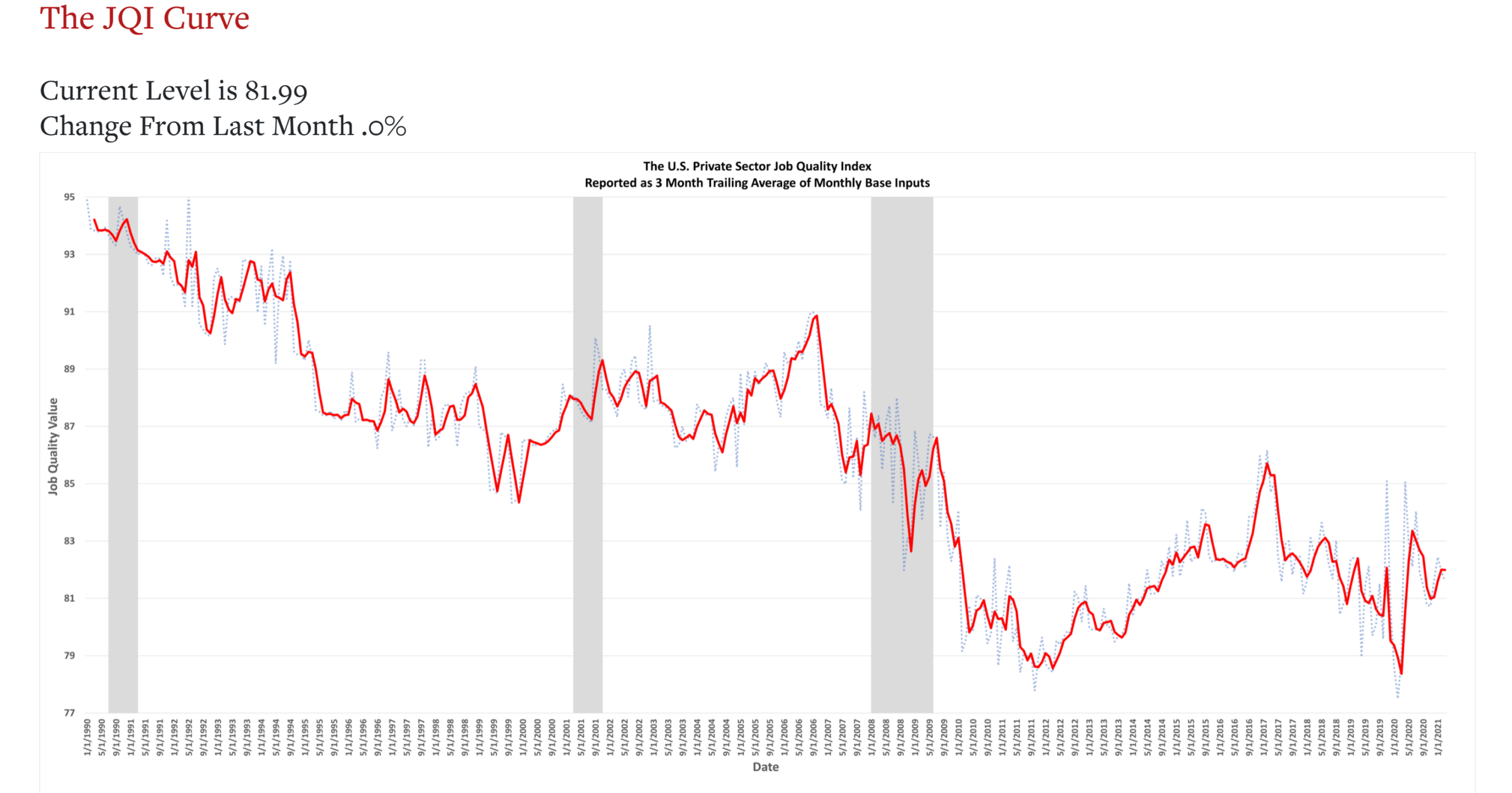
The United States suffers from a proliferation of bad jobs. Squeezing every nickel out of labor costs might seem efficient, but no one is counting the price in terms of lost competitive advantages.
Bad jobs – those that offer very low pay, few benefits, unpredictable hours, no opportunity for advancement and even dangerous working conditions – are plentiful in this country. This despite massive amounts of research by Jeffrey Pfeffer, Zeynep Ton, Bob Sutton and many others which clearly show that bad jobs are not only bad for society (think “social pollution”) but not all that good for the companies that offer them.
The epidemic of bad jobs
What changed physical pollution? As Jeff Pfeffer points out, we as a society determined that it wasn’t OK for companies to dirty the water and foul up the air. Yet, when it comes to the mental health and well-being of their workforces, we haven’t imposed similar standards. Yes, we have rules around physically dangerous workspaces, but not those around mentally dangerous ones!
As Cornell Law School economist Dan Alpert explains, “Through March of this year, most of the private sector jobs eliminated during the pandemic that haven’t been restored are production and “nonsupervisory” jobs that offered weekly pay averaging less than $750 prepandemic. There are more than 45 million low-paying jobs like these, constituting roughly 43 percent of all production and nonsupervisory jobs in the country. This is not about a mere, unfortunate corner of the jobs market.” As if that wasn’t bad enough, 23 million of these jobs paid less than $500 per week.
Indeed, job quality, as measured by Alpert’s Job Quality Index has been in retreat since the 1990’s when it was first measured.

Because they can
In spite of all the research, potential lawsuits, and general recognition that stressful workplaces in general and those offering bad jobs in particular are bad for people, many employers get away with offering them. In another instance of incentives gone awry, managers are incentivized to lower their labor costs – one of the reasons behind the large numbers of unpredictable-hours jobs in sectors such as food service and retail.
The times, however, may well be a changing.
Treatment of employees a Board-level issue
A brand-new study, released by Edelman, suggests that for some companies, anyway, making their workforce miserable is likely to prove devastating to their bottom lines. Edelman’s annual barometer presents the results of a global study with over 33,000 respondents. When they posed the question of which group of key stakeholders is most important for a firm’s long-term success, this year the answer was “employees”. More important than customers. More important than communities. Even more important than shareholders!
Indeed, those shareholder are singing the same chorus – in a different Edelman survey, 74% of institutional investors said attracting the best talent mattered more to them than a company’s ability to gain new customers or otherwise increase their share prices. Even more, up to 90% of customers believe that employers should do everything they can to support the physical and mental well-being of their people, even at the expense of profits.
Based on these findings, Edelman suggests that the way organizations treat their people can no longer be ignored by Boards – that just as a Board must be cautious about a fiduciary risk, so too are people management matters a source of enormous risk. They suggest a series of actions Boards should take, including:
- Investing in a full employee experience “pipeline” similar to the way organizations treat their customer pipelines (on this, see the intriguing offerings of Limeade, an employee experience company that I just became familiar with);
- Build trust with employees at multiple touchpoints because a lack of trust spills directly over to customer experience and brand
- Be aware of and respond to employees’ concerns about social and environmental issues;
- Use employees as valuable advocates in communications and presence
A few cracks in the ice
So, is a “good jobs for all” inflection point in our future? Pressures are starting to mount. In addition to Zeynep Ton’s fantastic work at the Good Jobs Institute, other influential players are starting to weigh in.
A particularly interesting report is from the organization Just Capital. My Friday Fireside guest Peter Georgescu is on their board. They’ve just published their list of the top 100 firms supporting healthy families and communities, and identified that these firms also outperform a basket of comparable firms that don’t make the grade with respect to their list.
The criteria they used to create these rankings? Whether the company…
- Pays a fair, livable wage.
- Cultivates a diverse and inclusive workplace.
- Protects worker health and safety.
- Provides benefits and work-life balance.
- Contributes to community development.
- Supports local communities.
- Makes products that do not harm.
- Helps combat climate change.
- Minimizes pollution.
- Prioritizes value creation for all stakeholders.
Sounds like a much better place to work than the bad-jobs companies Alpert describes. And if these items become meaningful topics on the Board and investor checklist, I suspect we may well begin to see things start to shift.
